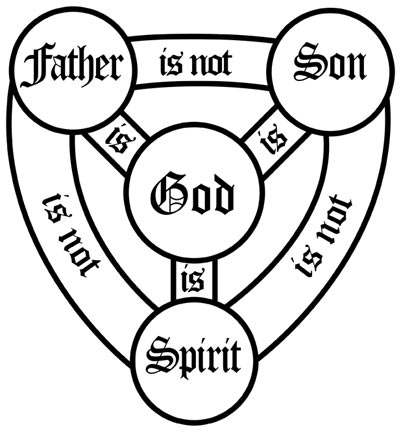Photo of “Minkie,” late 1990s, with clockwise from left: me, bro Mike, sis Susan, bro Bill
I no longer have any living grandparents. Homer Gary died of pneumonia in 1936 so, sadly, I never knew him. Gussie Gary died at the age of 96 in 1992. Bob Segers died of a heart attack at the age of 82 in 1986. And Susan Segers died in her sleep shy of her 100th birthday on November 1, 2007.
As firstborn grandkids often do, I nicknamed my grandmother. I was a toddler. I’d been to the doctor, and he had a picture of Mickey Mouse on the exam room door. I got Mickey Mouse and Grandma mixed up in my little brain, and I called her Minkie Ma. The name Minkie stuck. (Or should I say Susan Segers got stuck with the name Minkie?)
Everyone reading this has likely lost a loved one. And we Christians have attended funerals where bold assertions are made about where our deceased loved ones are right now. That’s what I want to write about here. And I want to make it personal. I want to ask the question, Where is Minkie right now?
Because we’re all stuck here in the flow of time, there seems to be a time gap in our Christian belief in resurrection on the last day, doesn’t there? It is a gap between our deaths and our future resurrections. This time gap has bothered Christians for centuries, and many explanations have been invented to account for it.
Keeping it personal, Minkie passed away in 2007. Her resurrection will occur on the last day, according to Scripture. But what about the meantime? What about now? If my grandmother is dead and buried, where is she until* the resurrection of the dead on the last day promised by Jesus?
1. Is her soul dead, too, until* resurrection day?
2. Is her soul asleep until* resurrection day?
3. Did her soul leave her body and go to an “intermediate heaven" until* resurrection day? (see my other blogs: Paul didn’t go to heaven; The psychic medium of Endor was a fake; and The soul doesn’t leave the body at death)
4. Did her soul get an “intermediate body” (a loaner body?) to wear until* her buried body can be resurrected and her soul reunited with it? (The loaner body must be disposable.)
5. Did her soul go to Purgatory to wait and to be purified until* resurrection day?
6. Did her soul go to Limbo to remain a wanderer or be punished until* resurrection day?
*UNTIL - a temporal term you have to use if you think of time in Newtonian terms.
None of these six imaginative inventions are in Christian scripture. I want to take a fresh look at the question of where the dead are right now. I want to propose that we look at time differently—a way that makes none of these biblically foreign inventions (1-6 above) necessary. And, strangely enough, Albert Einstein helps us see a biblical answer to our question.
1. Is her soul dead, too, until* resurrection day?
2. Is her soul asleep until* resurrection day?
3. Did her soul leave her body and go to an “intermediate heaven" until* resurrection day? (see my other blogs: Paul didn’t go to heaven; The psychic medium of Endor was a fake; and The soul doesn’t leave the body at death)
4. Did her soul get an “intermediate body” (a loaner body?) to wear until* her buried body can be resurrected and her soul reunited with it? (The loaner body must be disposable.)
5. Did her soul go to Purgatory to wait and to be purified until* resurrection day?
6. Did her soul go to Limbo to remain a wanderer or be punished until* resurrection day?
*UNTIL - a temporal term you have to use if you think of time in Newtonian terms.
None of these six imaginative inventions are in Christian scripture. I want to take a fresh look at the question of where the dead are right now. I want to propose that we look at time differently—a way that makes none of these biblically foreign inventions (1-6 above) necessary. And, strangely enough, Albert Einstein helps us see a biblical answer to our question.
Is there a tiny span of time when it seems to me experientially that Minkie is in the ground and nowhere else until the resurrection day promised by the Bible? Yes. But the important word is "seems" from an eternal, biblical perspective and from Einstein’s perspective, which “coincidentally” agrees.
I admit, here in the seeming flow of time, Minkie is seemingly no where else but in the ground, body and soul. That is, of course, not a very comforting prospect for me, as one who loved her. But I don’t believe that it’s true. Albert Einstein’s mind-blowing explanation of time, believe it or not, which most people have never heard or understood, illustrates a biblical view of time.
 From Einstein’s paradoxical perspective, Minkie is a toddler learning to walk right now, she’s giving birth to my mother right now, she’s being nicknamed by me right now, she’s burying Papa right now, she’s dying in the nursing home right now, and she’s risen with the Lord at the future general resurrection promised by Scripture right now.
From Einstein’s paradoxical perspective, Minkie is a toddler learning to walk right now, she’s giving birth to my mother right now, she’s being nicknamed by me right now, she’s burying Papa right now, she’s dying in the nursing home right now, and she’s risen with the Lord at the future general resurrection promised by Scripture right now.Each of these Minkies, every Minkie-moment, if you will, is literally in the spacetime loaf of our universe, all past moments, the present moment, and all future moments. All there. All happening. All real. In God’s universe, the one Einstein tried to explain to us Newtonian terrestrials, everything is happening.
Moses and Elijah, for example, visiting Jesus at the transfiguration are not ghosts, Scripture insists, but are men who are glorified. That means that they are resurrected human beings. But if the resurrection of the dead is a future event, how could Moses and Elijah already be raised? It’s because the resurrection slice is in the universe-loaf from the beginning. These glorified men not only visited from somewhere else. They visited from some-when else.
You can’t think chronologically to see this. You have to try to see the whole. Resurrection seemed like a "not yet" moment at the time to Peter, James, and John on that mountain with the glorified (resurrected) Moses and Elijah and Jesus standing before them. But the “not yet resurrection” revealed its truth to them by breaking into their present from the future.
Resurrection day seems like a “not yet” moment to us now too, an event disconnected from us in a distant, unknowable future. But from God’s universal eternity, and in Einstein’s universe that IS, a universe that IS happening, a universe that IS whole and complete, the future resurrection has happened, is happening, and will happen. It was and is and is to come, now and forever.
I’m going to give an analogy that helps me, but first, here is a key insight from what Einstein has taught us. Our universe does not just contain every where. It also contains every when, including (if you believe Scripture) the future resurrection day. Space (all wheres) and time (all whens) are inseparable. If all wheres exist, then all whens must exist, because space and time are one thing designated by one word: spacetime. Our universe is spacetime. Everywhere and everywhen compose our physical universe.
In spacetime, however, we creatures are only wired to experience one "now" at a time in the seeming flow of chronological time. But time doesn't really flow. Your past is really still here in our universe, not just a memory. Your future is here in our universe, though you haven't experienced it yet. Our universe includes all space and all time.
 Here’s an illustration that helps me visualize this. Picture a movie theater strip on a platter (a horizontal reel—pictured), let’s say the movie Titanic. Here are Jack and Rose in a single frame from the movie.
Here’s an illustration that helps me visualize this. Picture a movie theater strip on a platter (a horizontal reel—pictured), let’s say the movie Titanic. Here are Jack and Rose in a single frame from the movie.
We experience a movie one frame at a time as it passes in front of a projector lamp. But that doesn't mean that every frame we've already seen isn't still sitting up in the projection booth on a platter (pictured). Nor does it mean that every frame we're about to see isn't sitting up there in the projection booth on another platter. The movie, every frame, is whole and complete up there, but we can only experience it now-frame by now-frame.
We experience time like this because of our human, creaturely, design limitations. But the risen Jesus has no such limitations in the Bible. Neither does anyone resurrected. As the Apostle Paul insists, we will be like him in resurrection, and the risen Jesus is not bound by space and time.
Do you see the problem? Just because we perceive the universe one “highlighted now” at a time, argue physicists, does not mean that the universe exists in this way.
It flies in the face of our experience, but the physical universe appears to be one big present mega-moment. What we call past, present, and future all resound equally together across the vastness of all space and time. The Loaf shows no partiality to any one moment. It is we who do that. All nows are equal in the eyes of the universe. It is not so for us. That seems to be because we are designed to experience one note at a time. With one note at a time, we can we hear the melody. Without it, all the notes blare at us in unison dissonance.
So the universe is complete. Everything is happening in here. We live in a vast “eternal now.” And there are many "you moments" in our universe, all of them you, and all of them real, from your birth to your death to your resurrection.
Have you ever wondered, How can the risen Lamb of God be slain from the foundation of the world if the crucifixion and resurrection didn't happen until around 30 AD? It sounds contradictory. This biblical claim flies in the face of a conventional view of chronological time.
If the universe contains every when, however, then what we believe is the key event in the history of the universe---the crucifixion and resurrection of Jesus---is the key "now" among all nows that exist from eternity---from Alpha to Omega. A man born around 8 B.C. and executed around 30 A.D. is slain from the foundation of the world? Scripture says yes.
The reason that Jesus can be "slain from the foundation of the world" is because the whole of the universe (past, present, and future) came into existence whole. When the universe came into existence, it wasn’t just all wheres that came into existence. All whens came into existence too, including the crucifixion. The crucifixion of Jesus, the pivotal moment in our universe as we Christians see it, was and is and always will be present to the whole. It’s the linchpin moment in a forever-complete salvation-history.
From this perspective, the crucifixion-now can be seen as "simultaneous" with the creation-now and with the last-day-resurrection-now. They're all here together in the spacetime loaf, the complete physical universe, all whens from beginning to end are just here.
Consider this the key point: I see no problem with what Jesus means when he speaks from the cross, "Truly I tell you, today you will be with me in Paradise. ”Luke 23:43) The Lord is present to every day in the universe. They are all his simultaneous todays. And when we experience our death-nows as he did, we "skip" or "fast-forward" instantaneously to our joint resurrection-now with him. Therefore, the today of our deaths is literally the today of our resurrections. ( That's because from a heavenly perspective as well as an Einsteinian perspective, both days (like all days) are eternally simultaneous.
So when resurrection-Jesus popped in on the disciples behind locked doors, he wasn't just appearing from some-where else. He was also appearing from some-when else: the future resurrection of the dead. He transcended space and time to appear to his friends. He transcends spacetime still. He reigns over all spacetime in his kingdom of heaven. He is the resurrection. He is the Alpha (A) and the Omega (W....).

All this is to say that Minkie, the finest Scrabble player who ever lived, is both in the ground and alive forevermore at the future resurrection of the dead. She is dead yet alive. The kicker is, if the Bible and Einstein are correct about creation, then in our universe right now I am at the future resurrection of the dead with Minkie too, and so are you.









